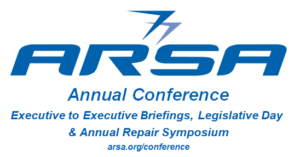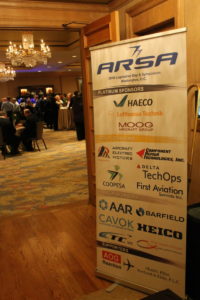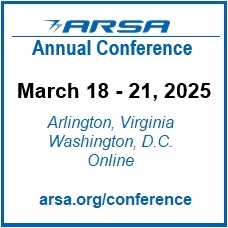2020 – Edition 6 – July 2
Table of Contents
Note: The order of material varies in hotline emails, but is always presented the same on this landing page. Readers scrolling through content on or printing this page will find it organized consistent with the table of contents.
Sarah Says
Anti-Viral Measures
ARSA Works
Legal Brief
ARSA on the Hill
Training
Membership
Resources
Industry Calendar
Sarah Says
The Show Will Go On
By Sarah MacLeod, Executive Director
On the last day of the 2020 ARSA Annual Conference the U.S. called a national emergency after which most of the world went into lockdown in response to the global pandemic. The reported cases were still small, but the seriousness and impact on public health, the global economy and our collective way of life were all becoming clear.
Before the Conference, ARSA made careful choices on how to proceed with the event. Recognizing the gathering’s value is central to the association’s good work – a platform for direct engagement with U.S. legislators and global regulators – the revenue sustains that work throughout the year. So, careful management of attendees, constant communication of resources and providing consideration for those unable to attend because of national, corporate or personal restrictions on travel were front and center before opening day in the nation’s capital.
Due to the importance of the gathering and the need to figure out the “new normal,” the ARSA team is already in full swing preparing for the 2021 Conference. While we do not know what the “state of the world” will be; we do know that this “crisis” is not over and even if it was, another is no doubt just around the corner. To accommodate the facts – that there will be restrictions on travel to and from some nations, companies will have found that face-to-face meetings may be great, but not essential to continued business health and the unknowns of the “new normal” – the association is working to deliver the Conference content in at least three ways.
LIVE: Come and visit the U.S. Capitol and sit close but not too close to legislators, colleagues and regulators. We anticipate that gatherings of less than 100 people will be allowed and that we can take multiple precautions to ensure that the spread of germs and diseases are kept to a minimum. Handwashing, temperature taking, and masking will be enforced rigorously and diligently.
LIVESTREAM: Watch the proceedings from the comfort (if not safety) of wherever you and your computer are residing or working. While we are not experts in providing livestream content, there are 20-somethings that are looking for work and experience in this arena. We are looking to make this method interactive, since live streaming can be dead boring if you cannot engage with the lawmaker or regulator or fellow aviation professional.
TAPED/ON-DEMAND: What you cannot catch or see live or during the live stream will be made available on-demand. If you do not wish to or cannot avail yourself of the live or livestreaming options, the presentations during the Symposium portion of the Conference will be available taped, in an on-demand setting.
ARSA’s team is deeply grateful to the participants of the 2020 Conference, the individuals that were able to stay through the entire gathering found the content important to the new reality which quickly followed. The team’s commitment to the industry cannot match that dedication but ARSA can ensure that the content is delivered no matter the ability to serve its members face-to-face live and in-person!
Help ARSA prepare by sharing your (early) thoughts on Conference attendance via this month’s “Quick Question.”
Anti-Viral Measures
ARSA Joins Multiple Efforts to Improve CARES Act
To keep tabs on all of ARSA’s work related to the current pandemic, visit arsa.org/anti-viral-measures.
When a regulatory or legislative issue broadly impacts the maintenance industry, ARSA coordinates industry response. A broad coalition of aviation and business associations routinely and willingly supports these efforts and coordinates on issues of mutual interest.
But ARSA’s can’t be at the front of the pack on every policy issue, so it is occasionally a loyal and supportive partner when others seize the reins.
The CARES Act is a case in point. Working with members, ARSA convinced Congress to provide billions of dollars in relief for repair stations through the Paycheck Protection Program (PPP), the Air Carrier Worker Support Program and a special loan fund created for airlines and repair stations. Once the bill was signed into law, the association continued to work with Congress and the Treasury Department to ensure the new programs benefit as many repair stations as possible. (See updates below for full coverage of these efforts.)
But there’s a lot more to the CARES Act than just the maintenance industry economic relief; the law also includes a new employee retention tax credit (ERTC), modified net operating loss (NOL) carryback rules and other tax law changes to help businesses weather the storm. In recent months, ARSA has joined numerous informal coalitions to expand, protect or change certain parts of the CARES Act.
Net Operating Loss Carryback Rules
The CARES Act provides a five-year carryback for NOLs generated in 2018, 2019 or 2020. Second, the CARES Act suspends for 2018, 2019 and 2020 the otherwise applicable limitations on excess business losses for noncorporate taxpayers. Combined, these provisions allow businesses to apply losses incurred in the current tax year to prior years and get a tax refund. On June 22, ARSA joined more than 70 groups on a letter coordinated by the National Mining Association encouraging Congress to protect the NOL provisions.
Liability Protections
In late May, in response to concerns that business could become targets of lawsuits because of their response to the pandemic, ARSA joined a letter coordinated by the U.S. Chamber of Commerce urging that the next round of coronavirus relief legislation include liability protections.
Employee Retention Tax Credit
ARSA also recently joined letters coordinated by the International Franchise Association in support of legislation to expand the ERTC, which many association members have indicated they plan to use. The letters express support for the JOBS Credit Act (H.R. 6776), which was introduced in May by Reps. Stephanie Murphy (D-Fla.) and John Katko (R-N.Y.). The bill would expand the ERTC credit percentage from 50 percent to 80 percent of qualified wages and increase the per-employee limitation from $10,000 for all calendar quarters to $15,000 per calendar quarter (and an aggregate of $45,000 for all calendar quarters) and improve coordination between the ERTC and the PPP so employers can be eligible for both programs.
By joining these and other efforts, ARSA is able to support advocacy efforts with impact while reserving its limited resources to focus on the issues that uniquely impact the maintenance community.
For more information about ARSA’s broad efforts to support industry needs, contact Executive Vice President Christian A. Klein.
Virtual FAA GA Town Hall Recording Available
To keep tabs on all of ARSA’s work related to the current pandemic, visit arsa.org/anti-viral-measures.
On June 18, the FAA hosted a virtual General Aviation Town Hall. The event was the second in the agency’s series of online discussions related to aviation industry pandemic impacts.
A recording of the event is available via the FAA’s YouTube channel and is embedded below.
FAA Releases SFAR Amendment
To keep tabs on all of ARSA’s work related to the current pandemic, visit arsa.org/anti-viral-measures.
Note: ARSA has been posting guidance, exemptions and other resources to arsa.org/faa-strategy as they become available. Review below to see new content.
On June 29, the FAA published amendment SFAR 118-1, “Limited Extension of Relief for Certain Persons and Operations During the Coronavirus Disease 2019 (COVID–19) Public Health Emergency.” The amendment expands the reach of the original special rule, which provides relief from a number of airman training and testing requirements impacted by disruptions related to the current pandemic, including:
(1) Training, recent experience, testing and checking requirements.
(2) Duration of medicals and knowledge tests.
(3) General procedures for completing a practical test.
(4) Renewal requirements for inspectors, flight instructors & pilot schools.
(5) Requirements for mechanics, parachute riggers, UAS operations.
The National Air Transportation Association (NATA) was a vocal advocate for the amendment’s release. Reporting on the amendment, NATA explained: “It is important to note that, apart from certain specific medical certification requirements, SFAR 118-1 is not generally an extension of the original relief. Rather, it is an expansion of relief to a group of airmen not originally covered by SFAR 118. Like the original SFAR 118, the relief for operational, training and testing requirements does not apply to operations conducted under 14 CFR Part 135. Relief defined for medical certification is applicable to all covered airmen.”
For more information on the SFAR, a recorded webinar is available from NATA via its archive at www.nata.aero/events/archived-webinars.
ARSA Works
Save the Date for the 2021 Annual Conference
March 9-12, 2021
Washington, D.C. & Arlington, Virginia
ARSA’s team is planning both in-person and virtual attendance options for the 2021 Annual Conference. The event will be hosted in and around Washington, D.C. from March 9-12, 2021. While the association works to ensure a valuable, substantively-enriching experience for all of its attendees, members and colleagues should make sure their calendars are blocked for those four days in March. (Click here to download an Outlook Calendar appointment to block your time.)
What began decades ago as ARSA’s Annual Repair Symposium has evolved into a week-long event including executive branch briefings, grassroots legislative advocacy and world-class regulatory compliance and business content. The event provides a regular venue for members and invited guests from around the world to network and discuss issues that matter to the repair station community.
Stay tuned to this page and arsa.org/news-media/events/arsa-conference for updates.
The Recent Past...See What Happened
2020 Annual Conference
Sponsors |
| |
Information |
March 10-13, 2020
Washington, D.C. & Arlington, Virginia
After months of preparation, thanks to the investment of the event’s sponsors and in service of its dedicated attendees, the association brought the maintenance community to the U.S. capital city. From the White House to Capitol Hill to back at the Ritz-Carlton, Conference week kept everyone busy.
Participant note: Agenda information, session materials and other resources are available in the digital companion. See the back of your badge for connection information.
See what happened at the maintenance community’s premier substantive event by scrolling down on this page.
The Live Feed…
To see Twitter content posted by @ARSAWorks during the event, click here.
Key Updates…
Monday, March 16, 2020 @ 9:11 a.m. EDT
What it looked like…
Photos from the 2020 Annual Conference are now available. To view them in a Google Photos Album, click here. Did you take any pictures? Share good ones with Brett Levanto (brett.levanto@arsa.org).
Friday, March 13 @ 11:58 a.m. EDT
ARSA Thanks Erickson, Jordan for Board Service
During its annual member meeting on March 13, ARSA recognized Chris Erickson of Erickson, Inc. and Gary Jordan of Jordan Propeller Service for their many years in association leadership positions. Erickson and Jordan completed their final terms on ARSA’s Board of Directors at its October 2019 annual meeting.
Friday, March 13 @ 9:12 a.m. EDT
Helping with Healing: ARSA Honors Scovel
On March 13, ARSA recognized former Department of Transportation (DOT) Inspector General (IG) Calvin L. Scovel, III with its 2020 Leo Weston Award for Excellence in Service to Aviation Safety.
Thursday, March 12 @ 8:39 a.m. EDT
Participants Get it All…
Agenda information, session materials and other resources are available in the digital companion. See the back of your badge for connection information.
Wednesday, March 11 @ 1:00 p.m. EDT
ARSA Honors Lawrence for Workforce Development Leadership
U.S. Rep. Brenda Lawrence (D-Mich.) received ARSA’s 2020 Legislative Leadership Award at a March 11 Capitol Hill ceremony.
Wednesday, March 11 @ 12:30 p.m. EDT
Maintenance Market Will Grow Amid New Crises
On March 11, the ARSA released its 2020 Global Fleet & MRO Market Assessment. The report, which was prepared for the association by aviation management consulting firm Oliver Wyman assesses the current state of the global aviation maintenance market and projects continued industry growth through 2030.
Wednesday, March 11 @ 10:02 a.m. EDT
LEGISLATIVE DAY SCHEDULE UPDATE
The 10:00 meeting with House Aviation Subcommittee staff has been moved to 3:00 p.m. It will still be in Rayburn 2167.
Tuesday, March 10 @ 5:41 p.m. EDT
Aviation Maintenance Leaders’ D.C. Tour Includes White House, DOT Stops
On March 10, a small group of senior aviation maintenance industry professionals participated in a series of collaborative discussions with high-ranking federal officials. The group began the day with a White House policy briefing, followed by stops at the Departments of Labor, State and Transportation.
Monday, March 9 @ 4:21 p.m. EDT
Conference Week Is Here…and It Is Happening
ARSA is monitoring the situation surrounding the coronavirus and the Conference is going ahead as scheduled. The association is coordinating with international participants to mitigate risks to Conference attendees. For more information and your own personal planning, please consult the U.S. Centers for Disease Control website.
Stay tuned to this page for updates. Conference registrants may find relevant contact information in the event’s Digital Companion.
2019 Annual Conference
The Live Feed from @ARSAWorks…
Click here to see the flurry of social media updates produced by ARSA’s team during the conference.
2019 Annual Conference Updates
March 19, 2019 @ 1:50 p.m. EDT – The Photos
Fresh from the camera of the official association photographer as well as the phones of ARSA team members capturing the key frames of this year’s event…
no images were found
March 15, 2019 @ 12:57 p.m. EDT – Thank You
Thanks for to everyone who supported the 2019 ARSA Annual Conference. Without the engaged backing of participants, sponsors, speakers and a host of others, the event could not have been such a great success.
If you were involved directly in the conference, be on the lookout for a “Thank You” email from “ARSA Events (arsa@arsa.org).” In addition to providing the thanks you richly deserve, the message lists a series of follow up actions, references and reminders.
Whether you were in the nation’s capital with ARSA or not, plan NOW to join next year: March 10-13, 2020.
March 15, 2019 @ 9:00 a.m. EDT – Global Good Sense Recognized by First-Ever Joint Weston Award
On March 15, ARSA gave its 2019 Leo Weston Award to two exceptional individuals from member companies. Werner Luehmann, head of regulatory compliance and authorities’ liaison at Lufthansa Technik and also Howard Whyte, quality fellow in regulatory compliance and aftermarket services for Collins Aerospace. The association presented the award jointly for the first time in order to recognize the career accomplishments of these international industry professionals – an American and a German. Each represent the commitment to safety and practical business sense needed for long-term success in the global aviation maintenance industry.
To see more, visit arsa.org/whyte-luehmann.
Global Good Sense Recognized by First-Ever Joint Weston Award
March 14, 2019 @ 7:00 a.m. EDT – Aviation Maintenance Industry Climbing into Workforce Headwind
The aviation industry is poised for another positive year with global spending on maintenance, repair and overhaul services expected to grow by more than $30 billion over the next decade, according to a new report prepared for ARSA by global consulting firm Oliver Wyman.
The new findings were presented by Oliver Wyman’s CAVOK Vice President, Steve Douglas, at a March 13 event on Capitol Hill in conjunction with ARSA’s 2019 Annual Conference.
To see more, visit arsa.org/market-assessment.
ARSA Report Shows North America Powers $100 Billion Global Industry
March 13, 2019 @ 11:30 a.m. EDT – Maintenance Industry Honors Graves, Lipinski for Aviation Workforce Leadership
On March 13, the aviation maintenance industry honored U.S. Reps. Sam Graves (R-Mo.) and Dan Lipinski (D-Ill.)for addressing the chronic shortage of technicians threating to undermine the growth and vitality of America’s aerospace sector.
Last year, Graves and Lipinski were lead sponsors of H.R. 5701, which created a new federal grant program to help recruit and educate aviation technicians. The legislation was ultimately enacted as Sec. 625 in the Federal Aviation Administration (FAA) reauthorization law signed by President Trump in October 2018.
To see more, visit arsa.org/graves-lipinski.
Maintenance Industry Honors Graves, Lipinski for Aviation Workforce Leadership
March 12, 2019 @ 5:45 p.m. EDT – ARSA Opens Policy Platform with Conference Kickoff
On March 12, a small group of senior aviation maintenance industry professionals participated in a series of collaborative discussions with high-ranking officials from U.S. federal agencies.
The meetings were part of ARSA’s “Executive to Executive Briefings” series where industry leaders have face-to-face discussions with government officials responsible for matters impacting aviation, manufacturing and international commerce. “E2E”, which was first hosted by ARSA in 2018, served as the official kick-off of the association’s 2019 Annual Conference.
To see more, visit arsa.org/e2e.
Aviation Maintenance Leaders’ D.C. Tour Includes White House, DOT Stops
March 11, 2019 @ 11:00 a.m. EDT – Follow Along
Conference week has arrived. Knock on wood, because as of right now the weather looks good, Metro is open and so is the government.
Participants have been emailed prep instructions necessary for the portions of the conference for which they are registered. Each of these messages, for participants in the Executive to Executive Briefings on Tuesday, March 12, Legislative Day on Wednesday, March 13 and the Annual Repair Symposium on March 14 and 15, provides key event details as well as access to the “digital companion.” All attendees are encouraged to access and bookmark the companion in order to access references, agenda details, ARSA team contact and any materials provided throughout the week.
Interested observers should stay tuned to this page (arsa.org/conference) throughout the event and follow @ARSAWorks on twitter for up-to-the-minute updates (when possible).
March 5, 2019 @ 10:25 a.m. EST – Get Ready
ARSA’s 2019 Annual Conference kicks off next week, with the Executive to Executive Briefings on Tuesday, March 12. Registration remains open until March 8, so anyone with the last minute urge to attend any of the conference week events should take action:
If you are a participant…
Right now, participants should be doing a few things to ensure they maximize their time in the nation’s capital:
(1) Make sure your travel arrangements and accommodations are in order and confirm your plans against the general schedule in the public agenda (click here to go to the event page to see the agenda).
(2) Be on the look out for the participant prep email, which will provide final details as well as access to the conference “digital companion.” The companion will include the detailed agenda, location information and speaker references for all activities. It will provide access to attendee lists, presentations and materials during and after the event as well as ARSA team contact information should immediate assistance be needed. It is the primary resource for anyone participating in the conference (VP of Operations Brett Levanto will continue adding to it throughout the event should attendees make specific requests that might benefit the entire group).
(3) Executive to Executive Briefing Day attendees must provide necessary security information to Executive Vice President Christian A. Klein. Klein has sent a request email to all attendees, anyone who has not received it should contact him directly for assistance.
(4) Legislative Day attendees should be scheduling (or have scheduled) meetings with the offices of their representatives and senators (Click here for basic instructions and a congressional staff contact list).
(5) Symposium attendees should take their final chance to submit “pre-questions” for Sarah MacLeod and Marshall Filler’s “Opening Salvo” discussion with regulators: arsa.org/qq-salvos.
(6) Submit any last minute questions either through the public “Ask ARSA First” portal or via the members-only online inquiry system, learn how at arsa.org/contact.
If you are an interested observer…
Stay tuned to this page (arsa.org/conference) throughout the event and follow @ARSAWorks on twitter.
Platinum Sponsors
 |
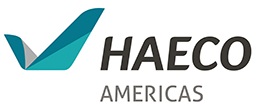 |
 |
Gold Sponsors
 |
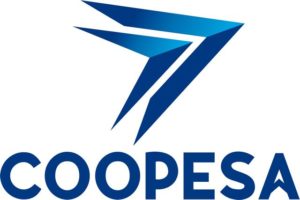 |
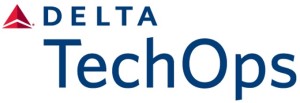 |
Silver Sponsors
Contributors
|
|
Exhibitors
Thank you to the organizations that have stepped up support the repair station community’s premier event. These companies are the perfect demonstration of the aviation world’s shared commitment to both good safety and good business (to learn more about a sponsoring organization, click the appropriate logo).
2018 Executive to Executive Briefings, Legislative Day & Annual Repair Symposium
The 2018 Executive to Executive Briefings, Legislative Day & Annual Repair Symposium kept participants busy from March 13-16.
If you were a participant…
Access the 2018 Symposium Digital Companion, a web page set up specifically for participants that includes the agenda as well as event logistical information. Presentation materials, references and other resources have also been included. The page is laid out to load cleanly on a smartphone, so you can carry it around and refer to it from your maintenance shop or living room.
To access the digital companion, visit http://arsa.org/symposium-2018. The page is password protected to ensure use is limited to registered attendees; to get the password, refer to the attendee prep emails or the event materials provided at symposium.
If you are an interested observer…
Review the content below to see what happened. Click on a linked item for more information.
Key Updates…
March 20, 2018 @ 11:13 a.m.
Symposium Week Photos:
A curated selection of the images taken by the ARSA team has been uploaded to the association’s Flickr account. Take a look to put faces and images to the descriptions of what happened during Symposium Week:
March 16, 2018 @ 12:00 p.m.
An awful lot happened this week:
ARSA’s first-ever set of “Executive to Executive” Briefings helped expand the maintenance community’s reach in the nation’s capital.
Once again, Legislative Day attendees wore out their shoes on Capitol Hill — one participant tallied more than 19,000 steps — connecting elected officials to the business of aviation safety.
The panels and professional sessions of the Annual Repair Symposium, member meeting and breakouts continue to be the repair station industry’s most valuable two days of substantive content.
The attentive engagement and support of this year’s participants made the event a great success. If you weren’t able to be here and work alongside them, make sure you checkout everything that was done and said.
Whether you were here this week or not, it’s already time to look ahead to 2019. Mark your calendar for year’s symposium activities from March 12-15, 2019.
March 15, 2018 @ 1:30 p.m.
ARSA Honors Jennifer Weinbrecht with Its Weston Award
March 14, 2018 @ 2:00 p.m.
ARSA Recognizes Inhofe for Legislative Leadership
March 14, 2018 @ 1:05 p.m.
New Aviation Maintenance Industry Report Shows Hopeful Economic Projections, Hard Workforce Truths
ARSA Report Shows North America Powers $100 Billion Global Industry
The Live Feed…
Follow along with @ARSAWorks and its legion of twitter followers during #ARSASymposium18…
2017 Legislative Day & Annual Repair Symposium
Thanks to all the participants, speakers, sponsors and allies who made ARSA’s 2017 Legislative Day & Annual Repair Symposium possible. See what happened when the maintenance community descended on the nation’s capital.
Friday, March 17 @ 12:01 p.m. EDT
The final curtain has officially fallen (metaphorically). ARSA is grateful to everyone who made this year’s event possible, persevering through unusually wintry weather to bring the voice of the maintenance community to the nation’s capital. As we close down at the Ritz-Carlton, a final, special thanks to the 2017 sponsors (to learn more about any of them, click the relevant logo):
2017 Platinum Sponsor
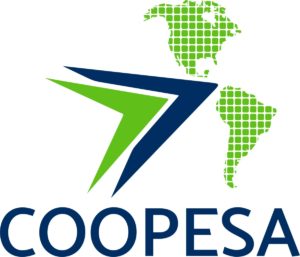 |
2017 Gold Sponsors
2017 Silver Sponsors
2017 Supporters
Friday, March 17 @ 11:04 a.m. EDT
As a great event comes to a close, mark your calendar for the next one:
…and for next year (click here to download next year’s symposium to your Outlook calendar).
Friday, March 17 @ 10:06 a.m. EDT
As its members sat down for ARSA’s Annual Meeting, the association honored Ms. Peggy Gilligan:
Thursday, March 16 @ 9:49 a.m. EDT
New ARSA member benefit announced. Welcome to PartnerShip:
Wednesday, March 15 @ 5:03 p.m. EDT
Legislative Day attendees got to spend some time with the unstoppable Rep.Virginia Foxx (N.C.) and honored her commitment to career technical education:
http://arsa.org/technical-workforce-development/
Wednesday, March 15 @ 1:35 p.m. EDT
Capitol Hill briefing complete. See what was presented:
ARSA Report Shows North America Powers $100 Billion Global Industry
Wednesday, March 15 @ 9:22 a.m. EDT
Attendees are on their way to Capitol Hill. As they breeze through D.C. traffic, take a moment to see what they’ll be talking about:
Tuesday, March 14 @ 10:14 a.m. EDT
The weather is already beginning to clear in the Washington, D.C. area. ARSA’s team is digging out and will be ready for tomorrow’s Legislative Day.
Should travel disruptions prevent a registrant from joining us, that individual should identify and provide us with a substitute since we do not offer refunds after March 1. If no colleague is able to make the trip or attend, registrants still can access all materials and follow up with the ARSA team should they need more insight.
Wherever you are, stay tuned for alerts and updates.
Monday, March 13 @ 9:10 a.m. EDT
The National Weather Service has issued a Winter Storm Warning for the Washington, D.C. area from March 13 at 7:00 p.m. to March 14 at 2:00 p.m. Forecasts vary depending on location, but the some mix of snow, sleet and rain is expected across the region. This warning is part of a larger weather system moving through the midwest and northeast United States.
ARSA’s Legislative Day & Annual Repair Symposium will continue as scheduled regardless of weather conditions. While Tuesday’s weather will be problematic, the system will clear in time for the area to get back to work on Wednesday and Thursday.
Registrants should take appropriate action regarding their personal travel and stay tuned to this page for event updates.
The Live Feed…See It As It Happened
2016 Legislative Day & Annual Repair Symposium
As the global maintenance community convened for ARSA’s 2016 Legislative Day and Annual Repair Symposium, Washington, D.C. became the capital of the aviation maintenance world. See what happened. For more information about the event itself, click here.
[Scroll down for event Twitter feed.]
March 21, 2016 @ 9:30 a.m. EDT
Thanks to all participants, speakers and sponsors who made the 2016 Legislative Day and Annual Repair Symposium possible. For those who attended, please be sure to review and download the event resources – including all presentations, attendee listings and references – on the materials page listed in the handout. (Lost the address? Contact ARSA for help.) Whether you made it to the nation’s capital this year or not, save the date for next year’s symposium, held March 15-17, 2017.
March 18, 2016 @ 9:00 a.m. EDT
ARSA Honors Maguire as Her New Career Takes Flight
On March 18, ARSA presented its Leo Weston Award for Excellence in Government Service to Crystal Maguire. Maguire, the association’s long-serving vice president of operations, accepted the honor from Executive Director Sarah MacLeod during ARSA’s 2016 Annual Repair Symposium.
March 17, 2016 @ 9:00 a.m. EDT
Gilligan Praises Aircraft Safety, Highlights Skill and Technology
During her keynote address, FAA Associate Administrator for Aviation Safety Peggy Gilligan focused on technical competency and technological advances that have made the American national airspace system the safest in the world. Gilligan noted that as a result, the U.S. commercial air system has not lost a passenger since February 2009 – 2,590 days of safety. Click here to see the programmatic references from Gilligan’s speech.
March 16, 2016 @ 3:40 p.m. EDT
Senate Panel Approves Bipartisan FAA Bill, ARSA Objects to Maintenance Provisions
On March 16, as ARSA members stormed Capitol Hill for the association’s 2016 Legislative Day, the Commerce, Science & Transportation Committee approved its 18-month, FAA reauthorization bill with bipartisan support. ARSA strongly opposes the bill’s maintenance-related provisions and Legislative Day attendees made the issue a top priority during visits to Senate and House offices.
March 16, 2016 @ 1:10 p.m. EDT
ARSA Releases Annual Economic Report, Highlights Impact of Maintenance
With FAA reauthorization bills taking center stage on Capitol Hill, ARSA’s annual economic market assessment once-again highlights the impact of an often unseen part of the aviation industry: maintenance. The 2016 Global Fleet & MRO Market Assessment prepared by Oliver Wyman was released March 16 at a Capitol Hill briefing. The event, conducted as part of ARSA’s annual Legislative Day, was headlined by House Aviation Subcommittee Member Carlos Curbelo (R-Fla.) and attended by aviation maintenance industry executives and congressional staff.
March 15, 2016 @ 5:00 p.m. EDT
WMATA: All Metrorail service will be suspended Wednesday, March 16, for emergency inspections
Legislative Day and Symposium attendees, particularly those not staying at the Ritz Carlton, Pentagon City but attending events on Wednesday, should account for Metrorail closures in their personal travel plans.
March 15, 2016 @ 12:25 p.m. EDT
Thank you to the 2016 sponsors:
 |
 |
|
 |
 |
|
 |
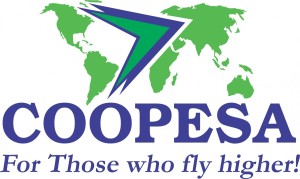 |
|
 |
 |
|
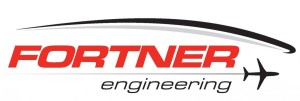 |
||
 |
 |
|
 |
 |
|
 |
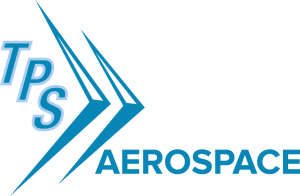 |
ARSA Remembers – Gene Mike Bland (1945-2020)
In June, passionate aviator and former FAA inspector Gene Mike Bland – Gene to friends and Mike to family – died in a single car accident while driving to his home in Nocona, Texas.
Bland’s long commitment to aviation included personal and professional experience as skydiver, jump master and instructor, A&P mechanic, pilot, FAA inspector and aviation consultant. After growing up outside of Redding, California, he became a smoke jumper for the U.S. Forest Service before joining the U.S. Army and deploying to Vietnam. He was awarded the Purple Heart, Bronze Star and Silver Star and remained in service after completing his tour in Vietnam on assignment to the 8th Special Group, Golden Knights, rigging parachutes. He later became a member of the U.S. Army parachute team and then the 7th Army parachute team in Europe, which won gold and silver medals in Belgium, Yugoslavia, Germany and Switzerland.
After an honorable discharge, Gene completed his BA degree at the University of Nevada, Reno Mackay School of Mines, where he initiated the UNR Parachute Team and taught others to skydive. Upon graduation, Gene was employed with Fairchild, Inc. in Winston-Salem, North Carolina, working on A-10 Aces 2 ejection seats. He became an A&P mechanic and earned his pilot’s license in 1979 while acting as director of maintenance for a flight school in North Carolina. For many years, he operated the Astroid Parachute Center in Asheboro, North Carolina.
He was instrumental in resettling Montagnard refugees in the Asheboro area. During 1980s and 1990s, he made several trips to Cambodia and Thailand and worked with the Royal Thai Border Police, taking advantage of language skills and experience gained during his Vietnam service.
From 1990 to 2006, Bland worked as an FAA principal maintenance inspector in Dallas, Texas for general aviation. His knowledge, stead character and integrity earned respect in the general aviation community. Bland is remembered by certificate holders for his dedication to their business success as well as the safety of the aviation system.
After retiring from the FAA, Gene continued Astroid Aviation as a consultant and expert witness, where he was able to fly his Cessnas frequently and assisted other aviators in any way he could.
“Every moment spent with Gene was worth a lifetime; his open-minded approach to aviation safety brought critical thinking to compliance well before the term was coined by the agency,” ARSA’s Executive Director Sarah MacLeod remembered. “The aviation industry lost one of its most dedicated professionals; my heart goes out to his family and the entire community.”
He is survived by his first wife, Mary Katherine McMillan Bland, son Charles William Bland and daughter-in-law, Tyffany Lyiana Price, grandson, Evan Page Bland, sisters Margaret Blackford Bland, Joyce Woods, Connie Cochran, and brother Bert Cochran. He will be especially missed by his wife of 27 years, Ellen Drew Bland and “Winkie,” the hangar cat, Gene’s constant and loyal companion.
Next Steps for “Part II” of 2020 Survey
The response window for “Part II” of ARSA’s annual industry survey, which focused on pandemic impacts and recovery planning for the maintenance community, has closed. The association’s team is grateful for the more than 100 representatives of international aviation maintenance companies who provided input.
The survey, which opened on June 5, was open to the entire industry, not just ARSA members. The analysis team will now review and analyze the data provided by this broad respondent pool. Key findings will be:
(1) Reported via ARSA’s communications and on its Data & Advocacy webpage.
(2) Utilized by the association in its advocacy for legislative relief and regulatory flexibility.
(3) Maintained for use in comparison against other projections and reports of industry health and economic activity.
If you have questions about the survey, including follow up on a response your company submitted or to provide additional information, please contact ARSA at arsa@arsa.org.
Final Documents/Your Two Cents
This list includes Federal Register publications, such as final rules, Advisory Circulars and policy statements, as well as proposed rules and policies of interest to ARSA members.
Legal Brief
Pandemic Recovery Tax Resources
By Christian A. Klein, Executive Vice President
The pandemic is forcing all of us out of our comfort zones; for example, this column traditionally focus on international aviation safety regulatory issues. With the industry responding to (and recovering from) ongoing pandemic-related economic disruptions, ARSA is finding resources on legal topics members need, including business and tax laws.
The need to find resources does not turn anyone at the association into business or tax experts, the information gathered for this article is driven by the preliminary responses to the survey on the impact of the pandemic, where members made clear that they needed help understanding the employee retention credit (ERC) and other tax law changes. This article provides some resources to research those provisions as a starting point for seeking specific advice to help your business recover.
Always Start with the Law
The first place to start in exploring any legal or regulatory issue is the law itself. In the case of recent tax changes, it is the Coronavirus Aid, Relief and Economic Security (CARES) Act, which President Trump signed into law on March 27. The statute included the Paycheck Protection Program (PPP), Air Carrier Worker Support Program and a special loan fund for airlines and repair stations (read more about them on “Anti-Viral Measures”).
Contained in Title II, Subtitle C (“Business Provisions”) of the CARES Act are:
- The employee retention credit (ERC) (Sec. 2301).
- Employer payroll taxes delay of payment (Sec. 2302).
- Net operating loss rule modifications (Sec. 2303).
- Modification of the limitation on losses for taxpayers other than corporations (Sec. 2304).
- Modification of the credit for prior year minimum tax liability of corporations (Sec. 2305).
- Modifications of limitation on business interest rules (Sec. 2306).
- Technical amendments to rules regarding qualified property improvements (Sec. 2307).
Of most interest to ARSA members is the ERC, which gives eligible employers an option to reduce taxes with a credit against certain employment taxes equal to 50 percent of qualified wages paid to employees (up to $10,000 per employee) between March 12, 2020 and January 1, 2021. Because the tax credit is refundable, if claimed credits exceed required tax payments, businesses can get an advance “refund” from the federal government.
To be eligible, businesses must, among other things, have been forced to fully or partially suspend operations due to government orders or experienced significant reductions in gross receipts (as defined in the law). However, businesses that have received PPP small business interruption loans are not eligible for the ERC. To read the ERC credit provision (or any other part of the bill described above) yourself, go to https://www.congress.gov/116/bills/hr748/BILLS-116hr748enr.pdf and search for the bill section (e.g., for the ERC search “2301”).
Joint Committee on Taxation (JCT) Analysis
Publications by Congress’s JCT should be the second stop (after the law itself) in the long road to understanding a new tax code provision. JCT reports are prepared by the legislative branch’s most sophisticated tax experts (so they are authoritative) and the reports are designed to be consumed by a broad audience (including members of Congress and congressional staff).
Unlike the bill, the JCT’s description of the CARES Act tax provisions includes both an in-depth explanation of each new tax directives and background information on how the provisions change current requirements. The JCT analysis includes references to existing tax laws and IRS rules impacting the CARES Act provisions in an understandable format and verbiage.
So, for example, the ERC provision of the CARES Act itself states that:
In the case of an eligible employer, there shall be allowed as a credit against applicable employment taxes for each calendar quarter an amount equal to 50 percent of the qualified wages with respect to each employee of such employer for such calendar quarter. … The amount of qualified wages with respect to any employee which may be taken into account…by the eligible employer for all calendar quarters shall not exceed $10,000.
The JCT report explains in more user-friendly terms that:
The provision allows an eligible employer to claim a credit against applicable employment taxes for each calendar quarter in an amount equal to 50 percent of the qualified wages with respect to each employee of such employer for such calendar quarter.
The amount of qualified wages with respect to any employee which may be taken into account in calculating the credit for all calendar quarters may not exceed $10,000. Therefore, under the provision, the maximum amount of credit per employee for all calendar quarters is $5,000.
Unless you are a tax expert used to reading the Internal Revenue Code, the language of the statute could have lead you to believe the maximum tax credit is $10,000 per employee. The JCT report helps clarify that because the credit is equal to 50 percent of qualified wages up to $10,000, the maximum credit per worker being $5,000.
Remember: The JCT report is not the law and the “plain language” of the statute will always rule; however, JCT’s materials are useful resources for making sure the language you read is the language that was meant.
Internal Revenue Service (IRS) Resources
You cannot rely exclusively on a government agency to establish compliance. A question I’ve often heard ARSA Executive Director Sarah MacLeod ask members who’ve been too deferential to the preferences and whims of local FAA inspectors is, “you wouldn’t let the IRS do your taxes for you, would you?” In other words, do your own homework first and foremost; or you might get rolled by the government.
However, unlike FAA guidance, IRS resources are closely aligned with the agency’s regulations and the federal laws that created them. Therefore, IRS handbooks, guidance and other developments can be helpful. The IRS has prepared a number of resources on the tax provisions of the CARES Act, including:
- The agency’s general “Coronavirus Tax Relief and Economic Impact Payments” webpage.
- A webpage focused on “Coronavirus Tax Relief for Businesses and Tax-Exempt Entities”, which, in addition to law changes, includes information about coronavirus-related filing and payment deadlines.
- A general overview of the ERC with examples of how the law works.
- A “poster” explaining the ERC and its interplay with the paid sick and family leave credits.
Your Own Professional Service Providers
Tax issues are notoriously complicated and because every business is unique there is no general advise available to protect decisionmakers. Once your own homework is done, seeking input from tax and accounting professionals who can help you definitively determine whether and how to take advantage of temporary or any permanent tax measures.
And, as Congress considers additional legislation to support economic recovery, provide ARSA with feedback about the CARES Act and make suggestions for other ways the federal government can help you and your employees.
ARSA on the Hill
Most of Congress’ Certification Reforms Already Underway
By Christian A. Klein, Executive Vice President
Congressional action to reform the FAA’s design and production approval process was inevitable after the Boeing Max accidents in late 2018 and early 2019. Despite many hearings on both sides of Capitol Hill, not much happened … until now.
On June 16, Senate Commerce, Science and Transportation Committee Chairman Roger Wicker (R-Miss.) and Ranking Member Maria Cantwell (D-Wash.) introduced the Aircraft Safety and Certification Reform Act of 2020 (S. 3969). A bill sponsored by the Republican and Democratic leaders of the Senate committee with jurisdiction over the FAA makes it much more likely S. 3969 will be considered by the full Senate and eventually become law. And, according to its sponsors, the purpose of the bill is to improve aviation safety based on lessons learned, including addressing human factors to accurately assess pilot responses to cockpit alerts.
“Safety is paramount,” Cantwell said in introducing the bill. “A primary goal of this legislation is to make sure the FAA remains in the driver’s seat when it comes to certification. This bill makes it clear the FAA is in charge of the certification workforce and the approval process. Additionally, it requires the FAA to act on the NTSB’s recommendations on new safety standards for automation and pilot training.”
Nothing like reinforcing the agency’s original mandate to create and oversee aviation safety requirements while ensuring that the certificate holder remains responsible for actually creating, operating and maintaining the required standards.
Among other things, the bill would:
- Mandate Safety Management Systems (SMS) for large aircraft and engine manufacturers. SMS is a systematic approach to safety policy, assurance and risk management. Sec. 4 of the bill mandates both an FAA rulemaking on manufacturer SMS that must be completed within two years and the creation of a rulemaking committee to make recommendations. Sec. 4 also requires the FAA to create a surveillance process to monitor compliance. Since most of these elements have been accomplished, the industry can look forward to rulemaking in this area with or without the passage of this legislation.
- Require the FAA to approve the appointment of Organization Designation Authorization (ODA) unit members and develop guidance for technical qualifications for unit members. Pursuant to Sec. 5 of the bill, the approval requirements would apply to employees, contractors and employers of suppliers to the ODA holder. The FAA is tasked with developing minimum qualifications for ODA unit members and may rescind approval of an ODA unit member at any time for any reason the FAA considers appropriate. While unit members whose approval is rescinded may appeal within the FAA, the decision is not judicially reviewable. ODA holders would be subject to new recordkeeping requirements and audits. Most of these measures are already a reality – however, making them a matter of law puts a new spin on the importance of industry involvement since the requirements applicable to the certificate and authority holders will not be mirrored inside the agency responsible for oversight. Ensuring that the agency’s representatives have the proper qualifications will continue to be an issue for the industry.
- Require the development of best practices for ODAs, including those that would ensure any reports of undue pressure or “regulatory coziness” are addressed. Sec. 6 would establish a panel to review best practices, gather lessons learned from other regulated industries, recommend ways to improve communication within the ODA and between it and the FAA, and review the FAA’s designee program. Once the panel completes its work, the FAA must establish best practices for all ODA holders, which may potentially be incorporated into ODA holder procedures manuals. Well, considering the Department of Transportation’s new “rule” on rulemaking, this “recommendation” will have to become a regulation or the “best practices” will need to become an industry (not agency) issued document.
- Require the FAA to review and reassess assumptions related to “human factors” (Sec. 7) (particularly situations involving multiple cockpit alerts and automation) when certifying aircraft. We are unsure where this “requirement” will lead, but the industry is already looking at ensuring that a cadre of pilots are involved in cockpit automation evaluations – we are always unsure of the value added by an agency that is not responsible for actually designing, manufacturing, flying or maintaining the products it oversees.
- Require the FAA to conduct more research into human factors problems related to aircraft design and certification. Sec. 8 of the bill requires the FAA to consult with aircraft manufacturers, operators, pilots and NASA as part of its research activities. This is nothing new or unusual – the industry should constantly be seeking knowledge from the same sources.
- Establish an FAA center of excellence that would examine human factors and automation within aviation (Sec. 9). One should note that the legislation may or may not create appropriations for this effort, although who could be against the idea?
- Require flight testing by a representative sample of international and domestic airline pilots (Sec. 10). As mentioned above, this is more or less in the works. The Congress does not fully appreciate the “sovereign nation” concept when it comes to aviation, but having a cadre of pilots “test” the assumptions made during the design phase seems an inevitable result of the myriad experience and knowledge differences among international pilots.
- Direct the FAA to establish an Office of Continuing Education to keep FAA’s certification engineers and inspectors current with new technologies and concepts (Sec. 11). Development of an office does not fund it, nor does the Congress articulate a method of keeping government personnel “current” when they cannot use the same resources as industry due to cost and prohibitions against industry providing training and knowledge “for free” to enhance the oversight capabilities of the agency. Providing training to the government engineer, inspector or pilot that is available to the industry for “free” is prohibited by laws and regulations meant to protect citizens against bribery and other nefarious actions by industry and government employees. Unfortunately, those laws also prohibit industry from ensuring its overseers can keep abreast of the technology and innovations key to advancing aviation safety.
- Provide funding authorization for the FAA to hire specialized technical staff with expertise in new and emerging technologies to assist in development of technical standards in certification (Sec. 12). One must remember with laws that there are “you can spend the money” statutes such as this one and then there are the “here is the money to spend” laws, called appropriations – often the two are not aligned.
- Prohibit FAA employees from receiving financial incentives or awards that relate to certification schedules or quotas (Sec. 13). Ah, metrics, where have you taken us?
- Direct the FAA to maintain a voluntary an anonymous safety reporting program for FAA employees to convey concerns about aircraft designs during the certification process (Sec. 14). This has been in place for quite some time and we do not see it going away with or without this law.
- Extend existing whistleblower protections for airline and maintenance employees to employees and contractors of aircraft, engine, and propeller manufacturers (Sec. 15). For those of you that have no experience with the current protections, they are handled by the Department of Labor – requiring two executive agencies to use collaborative efforts creates interesting results.
- Repeal unused certification authorities that would permit the FAA to further delegate responsibilities to manufacturers (Sec. 16). This efficiency directive will be interesting to see come about if the law actually passes as currently written.
- Require the FAA to review its own expertise and capability to understand the safety implications of new or innovative technologies, materials, and procedures that designers and manufacturers of passenger aircraft may adopt or introduce (Sec. 18). Kind of like asking the fox to assess other predators; how do you assess what you don’t know from the beginning? We are sure that the agency will ask outsiders to judge its inside capabilities before reviewing itself?
The full bill is available here. The press release from Sens. Wicker and Cantwell introducing it is here.
Given the bipartisan support within the Commerce Committee and lawmakers’ concerns about FAA oversight, the Committee will act on the bill without undue delay, no doubt before the end of summer. However, with a crowded legislative schedule and elections looming, it’s uncertain whether S. 3969 will be enacted by the end of the year.
|
Want to Learn More About ARSA PAC? ARSA’s Political Action Committee helps elect congressional candidates who share ARSA’s commitment to better regulation and a strong aviation maintenance sector. In this critical election year, ARSA PAC has never been more important. But ARSA is prohibited from sending PAC information to members who haven’t opted in to receive it. Please take a second to give us prior approval to talk to you about ARSA PAC. Doing so in no way obligates you to support PAC. It just opens the lines of communication. Click here to give ARSA your consent today. |
Senators Serve Notice – The Honeymoon is Over
By Christian A. Klein, Executive Vice President
When Steve Dickson was sworn in as the FAA’s new administrator last August, he knew the job was tough. The Boeing Max accidents shattered confidence in the agency’s oversight and acumen. Dickson, a collegial, straight talking former Delta executive and pilot, won plaudits from both sides of the aisle during the nomination process. If there was anyone who could pull the plane out of its tailspin, everyone agreed, it was him.
Fast forward to June 2020 and the good will Dickson engendered less than a year earlier has all but evaporated. During a June 17 Senate Commerce Committee hearing with Dickson and a representative of the victims of the Boeing crashes as the only witnesses, senators berated Dickson for the agency’s lack of responsiveness to requests for information, calling the climate within the agency “most unsatisfactory.” Chairman Wicker noted that, “[Twelve] of the requests that FAA has not responded to pertain directly to the 737 MAX certification – directly to today’s subject matter.” The FAA’s record of delay and non-responsiveness, Wicker continued, “shows at best an unwillingness to cooperate in congressional oversight. It is hard not to conclude your team at the FAA has deliberately attempted to keep us in the dark, and by that I mean our investigations staff, our committee and me. It is hard not to characterize our relationship during this entire process as being adversarial on the part of the FAA.”
“Administrator Dickson, I hold you responsible for this as the head of the agency. During your confirmation hearing, I asked you this question as we ask all nominees, ‘If confirmed, will you pledge to work collaboratively with this committee and provide thorough and timely responses?’ You answered “yes” as we require all nominees to do. The lack of cooperation by your agency calls into question the commitment behind that pledge,” the Chairman concluded.
The hearing’s timing was no accident; it focused on FAA’s oversight of aircraft certification and coincided with the introduction of S. 3969 the day before (see story above). While Dickson held his own during the exchange of views, he certainly didn’t convince Wicker and Cantwell to abandon the certification reform initiative. If anything, the hearing made it clear just how committed congress is to accountability and transparency at the FAA.
To watch the hearing and read Wicker and Cantwell’s statements, click here.
California Delegation Members Introduce Helicopter Safety Bill
Renowned basketball player Kobe Bryant’s death in January focused new attention on rotorcraft safety issues. On June 11, Rep. Brad Sherman and Sen. Dianne Feinstein introduced the Kobe Bryant and Gianna Bryant Helicopter Safety Act (H.R. 7182). The legislation would require terrain awareness and warning systems and crash-resistant flight data and voice recorders on all helicopters that carry six or more passengers.
The two California Democrats were joined by Sen. Charles Schumer (D-N.Y.), Kamala D. Harris (D-Calif.), Richard Blumenthal (D-Conn.), Kirsten Gillibrand (D-N.Y.) and Edward J. Markey (D-Mass.). Given that all the bill’s sponsors are Democrats and that neither of the lead proponents are on authorizing committees with jurisdiction over the FAA, the bill is unlikely to move anytime soon in either chamber (particularly the GOP-controlled Senate). However, it is not outside the realm of possibility that Carson or Feinstein will add the bill as an amendment to another piece of FAA-related legislation later this year (e.g., S. 3969).
To read the bill, click here. To read press statement introducing the bill, click here.
Training
ARSA Extends Training Benefit to PAMA Members
ARSA has announced it is offering association member prices to individuals who belong to the Professional Aviation Maintenance Association. PAMA joins Airlines for America, the Alaska Air Carriers Association and the Aviation Technician Education Council on the list of allied industry organizations provided special consideration for ARSA training.
ARSA’s online training library has more than 80 hours of on-demand content available for immediate viewing; registrants get unlimited access for three months, in addition to copies of all session materials and a certificate upon completion.
While every session is valuable for maintenance professionals, PAMA members holding Inspection Authorization should take advantage ARSA training to meet their annual renewal requirements under § 65.93(a)(4). The association currently has 22 hours of training accepted for IA credit by the FAA – including its entire Human Factors series – and is working on supporting documentation that would assist a mechanic in seeking acceptance for any session. (Learn more at arsa.org/training-resources)
In addition to member price benefits, all ARSA training sessions are currently discounted 50 percent to support personnel development needs during the pandemic. For more information about ARSA’s training program, review the menus below. If you have questions or would like to learn more about ways to integrate ARSA training into an organizational training program, contact Vice President of Operations Brett Levanto (brett.levanto@arsa.org).
Government employees: Contact ARSA directly for auditing opportunities.
Registration: Registration and payment may be processed directly through the training platform/course catalog (free account creation required).
Technical questions and assistance: Click here for FAQ and technical support from training platform vendor.
Refunds: No refunds are granted for ARSA training sessions. When classes are canceled, registrants can choose from future courses of equal value. If a registrant is unable to attend a live session, their registration allows access to the on-demand, recorded version of the webinar.
IA Approval: A number of ARSA training sessions have been accepted for Inspection Authorization (IA) renewal credit. These sessions are denoted on their registration page with their FAA course acceptance number (in red).
Benefits: Registration for an ARSA-provided training session includes:
- Access to the live class session on the scheduled date (if applicable).
- Unlimited access to the on-demand, recorded version of the webinar to be made available after the live session is complete (or at time of purchase, for on-demand classes).
- A copy of the presentation and all reference material with links to relevant resources and citations.
- A certificate* upon completion of the session as well as any required test material.
OFM&K Training Portal: All of ARSA's training sessions are provided through OFM&K's training portal. As the training provider of choice for ARSA and a trusted resource for the aviation community, the firm's training materials represent a vital tool for entities pursuing regulatory compliance and business success. All of the courses are administered via PotomacLaw.InreachCE.com, which is not part of ARSA's website.
Complying with Part 145 – “Soup to Nuts” (Four Hours) Instructor: Sarah MacLeod Description: Specially recorded with a hand-picked audience for interactive discussion, this session thoroughly reviews 14 CFR part 145, discusses the application of the rule and overviews some practical implications of obtaining and maintaining a repair station certificate. Pricing Note: This is a four-hour session and is $300 for members and $600 for non-members. Click here to register and get access for 90 days.
Sessions Accepted for IA Renewal Credit Eight of ARSA's on-demand training sessions have been accepted by the FAA for Inspection Authorization renewal credit under 14 CFR § 65.93. Each session is currently available for registration and immediate access:Click here to purchase all eight sessions (plus one required prerequisite) at a “bundled” discount – let ARSA take care of your IA renewal requirements this year. Click here to purchase all eight sessions (plus one required prerequisite) at a “bundled” discount.
Aircraft Parts
Audit Activism & Prophylactic Lawyering
Drug & Alcohol Testing
Human Factors
Instructions for Continued Airworthiness
Parts 21, 43, 65, 145 (and others)
Public Aircraft"Going Global" - International Regulatory Law
Grassroots Advocacy
Recordkeeping – "Finishing the Job with Proper Paperwork"
The Fourth Branch of Government (Administrative Agencies and Procedures)
Self Disclosure Programs and Practices
(1) Subscription. Make up-front, bulk purchases of training hours. The details of each subscription can be customized, including focus on specific subject areas (e.g., human factors) or options for specially-priced session access after the initial hours have been used.
(2) “Championing” a session. Guarantee a certain number of attendees for training in a particular topic that will also be made available for general registration. Variations include open registration for a live session (i.e., company personnel participate at the same time as general registrants) or a company-specific live event for which a recorded version (not including any company-specific information) is made available for on-demand registration.
(3) Tailored training. Contract ARSA's management firm Obadal, Filler, MacLeod & Klein, P.L.C. to produce or modify training specific to your organization. The team can then re-record it (or offer it as a separate live session) for ARSA’s training program. Tailored programs are priced differently from ARSA’s hourly rate and are administered by OFM&K, which allows for a client engagement and related attorney-client privilege for all discussion.
For more information about ARSA's training program, review the menus below. If you have questions or would like to learn more about ways to integrate ARSA training into your own program, contact Vice President of Operations Brett Levanto (brett.levanto@arsa.org).The association’s training program is provided through Obadal, Filler, MacLeod & Klein, P.L.C., the firm that manages ARSA. To go directly to OFM&K’s online training portal, visit potomaclaw.inreachce.com. To learn more about the association’s training program and see course availability, visit arsa.org/training.
What training do you need? Contact ARSA to let the association know and help get it developed.
From the FAA – Maintenance Error
This course provides a foundation of Maintenance Error Fundamentals. It considers the error-prone nature of human beings and system influences on performance. For practical application, the course will review a real example of an accident resulting from maintenance error and apply general concepts to the case study.
For more information, click here to visit FAASafety.gov.
Regulatory Compliance Training
Test your knowledge of 14 CFR § 145.3 – Definition of terms.
Click here to download the training sheet.
Membership
Under Construction – ARSA Publications Overhaul
One of the key benefits for the ARSA team and its members is development and access to model manuals, programs and supplements designed to assist companies with regulatory compliance. Anyone who visited the publications webpage in June noticed that ARSA’s most important models are not available for purchase or download.
Don’t panic: This is good news.
The ARSA team is currently overhauling its model repair station, quality, training program and forms manuals and related documents. When this update is complete, new versions will be available from the association.
During the overhaul of the part 145 documents, the other tools available only to ARSA members, e.g., the Working Away Advisory, Repair Station Security Resources, remain accessible. Each model or template is maintained and improved by the association based on industry experience, agency guidance and plain-language interpretation of regulatory requirements.
If you need assistance development or correcting repair station documentation, contact ARSA for more information and possible assistance by its management firm, Obadal, Filler, MacLeod & Klein, P.L.C.
Quick Question – 2021 ARSA Conference Attendance Plan
In June, ARSA confirmed its plans to host the 2021 Annual Conference on schedule from March 9-12. The association will host its usual in-person event in-and-around Washington, D.C. and also provide virtual options for those unable to participate on premises.
The events team has a number of details to work out, but you can help by sharing your logistical considerations and attendance preferences via this month’s “quick question.”
If the embedded survey does not appear/load, open the survey independently by visiting: https://www.surveymonkey.com/r/2021ARSAConferencePlan.
Note: The survey below is in an embedded window and you may need to scroll down within the window to see/click the “Submit” button.
Click here to see what questions have been asked and answered…and keep a lookout for more.
For more information about this or any other question, contact Brett Levanto (brett.levanto@arsa.org).
Welcome & Welcome Back – New & Renewing Members
ARSA’s members give the association life – its work on behalf of the maintenance community depends on the commitment of these organizations. Here’s to the companies that joined or renewed in June:
New Members
EcoServices, LLC, R02
The Ohio State University Airport, EDU
Tidal Aviation, LLC, R01
Renewing Members
Aerospace Engineering Group, S.L., R03, 2014
Aeroworx, R02, 2010
Air Transport Components LLC, R04, 2015
Aircraft Specialties, Inc., R03, 2019
Aviation Repair Resources, Inc., R02, 2009
Chromalloy, Corp, 1993
Fleet Support Services, Inc., R01, 2013
Helicopter Services of Nevada LLC, R01, 2005
Houston Aircraft Instruments, Inc., R01, 2002
Jared Britt-SUU Aviation, Edu, 2017
Jet Center MFR, R02, 2006
MT Texas, LLC, R03, 1990
Ozark Aeroworks, LLC, R02, 2015
Pac West Helicopters, Inc., R02, 2009
Pacific Aero Tech, LLC, R04, 1994
Pacific Aerospace, LLC, R01, 2005
Performance Repair Group, R02, 2013
Piedmont Propulsion Systems, LLC, R03, 2011
Scott Richard Aircraft Maintenance, R02, 2010
Signature Engines, Inc., R01, 2003
SAFETECH USA, INC.- Humble, R02, 2002
Southwest Airlines, R06, 2005
TAE Aerospace, Inc., R01, 2019
The Aviation Group, Inc., R01, 2011
Triumph Airborne Structures LLC, Corp, 2003

A Member Asked…
Q: The repair station is looking at electronic record keeping to save physical space. Do the records have to be signed electronically or can they be signed/filled out manually and then scanned for electronic storage?
I reviewed the following text from Order 8900.1:
Electronic Recordkeeping System. A system of record processing in which records are entered, electronically signed, stored, and retrieved electronically by a computer system rather than in the traditional “hardcopy” or paper form.
That reads to me like the records have to be electronically entered and signed to do electronic record keeping.
A. Excellent question! Let’s break it down:
The regulations (a good place to start rather than the agency’s guidance to its workforce) merely state that the repair station manual must contain, “A description of the required records and the recordkeeping system used to obtain, store, and retrieve the required records.” [Emphasis added.]
Mirriam-Webster Dictionary defines description as: “a statement or account giving the characteristics of someone or something: a descriptive statement or account – The review was little more than a description of the film’s plot.”
Therefore, the RSQM need not go into detail about how the company creates (obtains), completes, stores and retrieves the required records. The agency and the industry have gone way overboard on the “electronic record” bugaboo in guidance and advisory material.
The agency did not ask us how we made paper, pens and ink when we were creating records by hand, typewriter or word processor. It is only since “computers” could “store” records either from the word processing software or from a scan that everyone started down the path of “show me” your system works.
So, can you scan records after they have been created by hand and destroy the “originals” and still be in compliance with 14 CFR? ARSA believes so, but only if you haven’t tied yourself down with specific language in the RSQM or the Forms Manual.
Does that help?
Member questions should be submitted directly to the association’s team via arsa@arsa.org.
Make ARSA’s Voice Your Own: Advertise
ARSA has a menu of advertising opportunities for arsa.org, the hotline and the ARSA Dispatch. Take advantage of these great opportunities today to showcase your company, a new product or event. For more information go to arsa.org/advertise.
Stand Up for ARSA by Sponsoring
In order to provide world-class resources for its members, the association depends on the commitment of the aviation community. By sponsoring events and activities, supporters can help ARSA’s work on behalf of repair stations to endure.
Need a place to start? For information about opportunities, contact Vice President of Operations Brett Levanto (brett.levanto@arsa.org).
Resources
ARSA strives to provide resources to educate the general public about the work of the association’s member organizations; should you need to provide a quick reference or introductory overview to the global MRO industry, please utilize AVMRO.ARSA.org.
Anti-Viral Measures
For the use of its members and the larger aviation community, ARSA is maintaining this page as a resource for pandemic-related updates on policy initiatives and business needs. It is the association’s central point of communication on the topic
H.R. 5119 – Contract Maintenance Under Attack
Help combat a bill introduced in the U.S. Congress that would disrupt the global aviation industry.
Industry News Roundup
ARSA monitors media coverage on aviation maintenance to spread the word about the valuable role repair stations play globally by providing jobs and economic opportunities and in civic engagement. These are some of this month’s top stories highlighting the industry’s contributions. You can explore these stories through ARSA’s Dispatch news portal.
Industry Calendar
| Conference | Dates | Location |
| Farnborough Air Show Cancelled | 7/20-24/2020 | Farnborough, UK |
| MRO Americas | 9/1/-3/2020 | Dallas, TX |
| ATEC Annual Conference | 9/13-16/2020 | Fort Worth, TX |
| MRO Asia-Pacific | 9/22-24/2020 | Singapore |
| FlightGlobal Big Data Americas Cancelled | 9/29-30/2020 | Seattle, WA |
| Business Aviation Convention & Exhibition (NBAA-BACE) | 10/06-08/2020 | Orlando, FL |
| MARPA Annual Conference | 10/21-22/2020 | Orlando, FL |
| MRO Europe | 10/27-29/2020 | Fira Barcelona Gran Via, Spain |
| MRO Middle East Summit & Expo | 3/1-3/2021 | Dubai, UAE |
| ARSA Annual Conference | 3/9-12/2021 | Washington, DC |
| HAI Heli-Expo | 3/22-25/2021 | New Orleans, LA |
| FAA Aviation Safety Infoshare | 4/20-22/2021 | St. Louis, MO |
| MRO Beer | 6/2021 | Istanbul, Turkey |
| RAA 45th Annual Convention | 9/25-28/2021 | Phoenix, AZ |
the hotline is the monthly publication of the Aeronautical Repair Station Association (ARSA), the not-for-profit international trade association for certificated repair stations. It is for the exclusive use of ARSA members and federal employees on the ARSA mailing list. For a membership application, please call 703.739.9543 or visit arsa.org/membership/join. For information about previous editions, submit a request through arsa.org/contact. This material is provided for educational and informational purposes only. It does not constitute legal, consulting, tax or any other type of professional advice. Law, regulations, guidance and government policies change frequently. While ARSA updates this material, we do not guarantee its accuracy. In addition, the application of this material to a particular situation is always dependent on the facts and circumstances involved. The use of this material is therefore at your own risk. All content in the hotline, except where indicated otherwise, is the property of ARSA. This content may not be reproduced, distributed or displayed, nor may derivatives or presentations be created from it in whole or in part, in any manner without the prior written consent of ARSA. ARSA grants its members a non-exclusive license to reproduce the content of the hotline. Employees of member organizations are the only parties authorized to receive a duplicate of the hotline. ARSA reserves all remaining rights and will use any means necessary to protect its intellectual property.
© 2020 Aeronautical Repair Station Association







